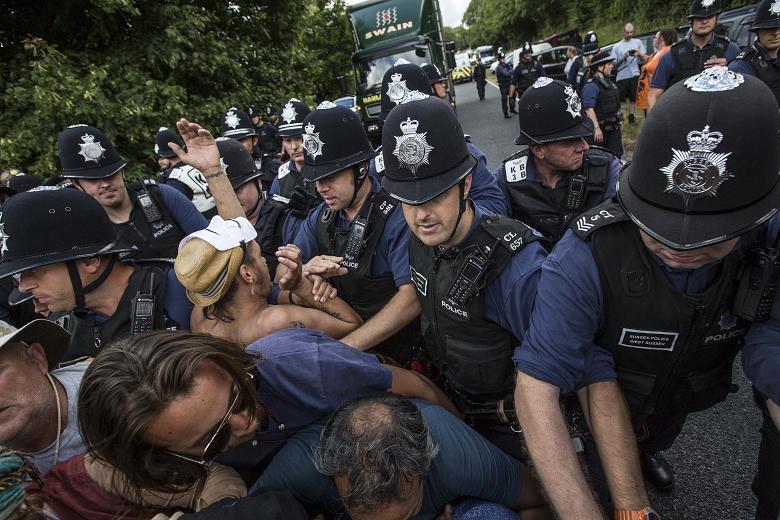
Over the last couple of years the anti-fracking movement in the UK has become a force to be reckoned with – and a sign of its growing maturity is the written resources it already has at its disposal.
Numerous campaigners with excellent researching skills have surfaced, with Ruth Hayhurst’s Drill or Drop website, for instance, an outstanding source of news and information.
Martin Dale’s 2015 book Balcombe and Beyond: UK’s Frack Free Movement plays a similarly important role.
It is an account both of the fracking industry and of the movement that has sprung up, almost overnight it seems, to resist the threat.
Endorsed with a foreword by actors James Bolam and Sue Jameson, it is written, I think, in just the right way to be able to make new converts to the frack free rebellion. There are plenty of hard detailed facts to convince sceptics, but not at the expense of an overview of the broader context.
The book contains some particularly useful rebuttals of the myths rolled out by the industry, via an obliging corporate media, to justify its ecocidal activities. For instance, we are often told that there is in fact nothing new about fracking and it has been around for decades.
Dale responds: “Artificially stimulating wells is an old technology, but high-pressure high-volume slack water hydraulic fracturing has only been in use for around ten years. The Department of Energy and Climate Change, and the former Secretary of State for Energy and Climate Change, confirm that only one well has been ‘fracked’ in the UK – Preese Hall near Blackpool in 2011”.
He also easily deflates the industry’s insistence that “the amount of water used in fracking is considerably less than used in agriculture and even by golf courses annually” by pointing out: “The water used in agriculture and golf courses is able to return to the natural water cycle and so is not wasted or removed. Fracking, however, pollutes the water used to such an extent that it cannot be cleaned or returned to the water cycle”.
Continuing to explore the key subject of water, he adds: “In the USA four states have proven that their water sources have been polluted by fracking. The geology of the UK is much older and more heavily faulted than in the USA, meaning that there are many times more opportunities and likelihood of migrating contaminants and seismic events”.
And he asks, crucially: “If drinking water is safe, why are drilling companies in the USA going to the huge expense of shipping and supplying bottled water free of charge to residences near fracking sites?”
The enormous impact of fracking on the countryside is something deliberately obscured by the industry, which likes to present a picture of one or two inconspicuous nodding donkeys in a largely unchanged landscape.
However, as Dale points out: “Aside from all the other environmental issues, if the UK is to see the same kind of ‘fracking boom’ as in the USA then large tracts of the countryside would have to be given over to well pads and pipelines – approximately one pad every kilometre, each with up to 10 or 12 lateral wells”.
Observers of the fracking industry will have noticed a pattern of denial in the way it tries to push its projects through with the minimum of local opposition. It is prepared to swear until it is blue in the face that is not going to frack, and then suddenly, at the last minute, announce that, actually, it is going to do so after all. Is this what is going to happen, for instance, at Broadford Bridge in West Sussex?
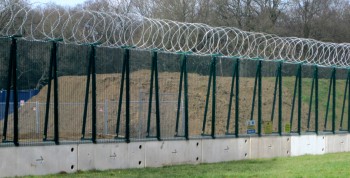
Dale charts this oft-repeated scenario as it unfolded a couple of years ago in Lancashire: “On 11th January 2013, less than two months after ruling out hydraulic fracturing, Cuadrilla submitted a Scoping Opinion to Lancashire County Council to accompany an application for ‘the testing and hydraulic fracturing of exploratory lateral borehole’ at the Annas Road site. Confusingly, the aforementioned application, validated just five days later, expressly ruled out any fracturing at the site, instead wishing to take a core sample of the shale rock along a lateral borehole”.
The UK authorities have also often tried to reassure the public that fracking will be perfectly safe here, because of all the lovely regulations we have in place.
But the book reveals that behind the scenes the government has in fact been trying to prevent regulations from getting in the way of the fracking industry’s profits!
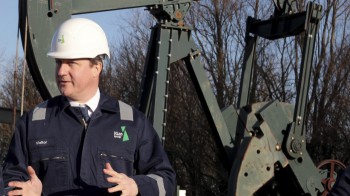
Dale writes: “Leaked documents from the European Commission in January 2014 identified Prime Minister David Cameron and the UK Government as the chief opposition to new environmental legislation on fracking operations, stating in a letter to the EC President: ‘It is essential the EU minimise the regulatory burdens and costs on industry… by not creating uncertainty or introducing new legislation. The industry in the UK had told us that new EU legislation would delay imminent investment”.
Dale reveals that the only “regulation” the UK has in mind is one conducted by the industry itself! “UK pro-shale advocates cite that there are ‘Gold Standard Regulations’ that make the process of fracking safe for the UK. However, it has been found through Freedom of Information requests that neither the Environment Agency nor the Health and Safety Executive conduct independent inspections of any oil or gas well sites, but instead rely on self-regulation by the well operators”.
The author points out early in the book that “the Coalition Government are overtly pro-shale” and as the details of his research confirm time and time that this is indeed the case, so it leads us on to a broader, and more disconcerting, appreciation of the close collaboration between state and business.
On every level, the state exposes itself as a tool in the hands of the fracking industry. Even the road repairs and widening around drill sites are in effect a subsidy for private industry from the public purse.

The UK state has also actively prevented the public from hearing the truth about the disastrous impact of fracking if it is allowed to go ahead, even notoriously censoring one of its own reports on the issue! Dale recalls that in August 2014, government department DEFRA released a report “on the potential impacts of shale gas exploration on rural communities. The report was only 13 pages in length but contained 63 redactions, obscuring almost all of its content. Eight sections had been deleted from the executive summary, four sections on economic impacts, four sections on social impacts, 17 sections on local service impacts and three sections specifically looking at the impact on house prices near drilling sites”.
The state’s reaction to public opposition to fracking – in particular the right to drill under people’s homes without their permission – has also exposed as a complete sham the phoney “consultation” with which it likes to dress up its edicts.
The book tells us: “On the 26th September, the Department for Energy and Climate Change announced the results of the consultation on underground access – some 40,647 responses were made with an astonishing 99% rate of objection to the plans to allow drilling without landowner permission. However, in a press release DECC stated that: ‘We acknowledge the large number of responses against the proposal and the fact that the proposal has provided an opportunity for the public to voice their concerns and raise issues. However the role of the consultation was to see arguments and evidence to consider in developing the proposed policy. Whilst a wide range of arguments were raised and points covered, we did not identify any issues that persuaded us to change the basic form of the proposals”.
As if this wasn’t bad enough, a couple of weeks later a last-minute amendment to what was to become the Infrastructure Act allowed fracking firms to put any substance at all into the ground and leave it there for ever!
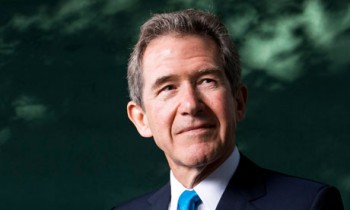
A whiff of suspicion has surrounded the fracking industry’s links to government ever since it emerged that Balcombe’s MP Francis Maude had appointed Lord Browne, then chairman of fracking firm Cuadrilla, as lead non-executive in the Cabinet Office, advising on energy policy.
A few eyebrows were also raised when it was revealed that the new chairman of the Environment Agency, Sir Philip Dilley, was from 2009 to 2014 chairman of consultancy company Arup Group, the agent for Cuadrilla’s new drilling application for Balcombe in January 2014.

Vested interests have also popped up in less expected quarters, Dale explains, detailing the case of David Montagu-Smith, chairman of fracking firm Rathlin Energy: “Mr Montagu-Smith is also the Chairman of the West Northamptonshire District Committee of the Campaign to Protect Rural England (CPRE) and it has been revealed in the minutes of a meeting of Desborough Town Council held on the 20th February 2014 (at which he gave a presentation on fracking) that he worked on the development of CPRE’s National Fracking Policy Guidance.
The opening line of these guidance notes (published in November 2013) states: ‘Based on the information we have at present, the CPRE does not oppose the exploration of shale gas in principle, provided it meets certain conditions’.”
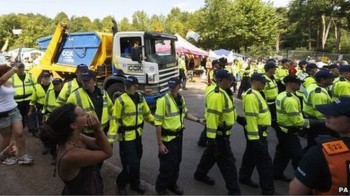
Of course, the role of the police in loyally defending the interests of big business against those of the communities they supposedly serve has been a major part of the fracking story. Dale quotes a lawyer who represented some of the Balcombe campaigners as saying of the police: “What they did criminalised protest. They used the Section 14 orders and bail conditions, which were imposed on everyone, and which stopped them from going within miles of the site, to stop them from protesting. It was like an injunction by the back door. If you turn up – new to protest – and then see people being arrested and handcuffed, it is quite shocking and frightening and puts you off being there”.
The police’s interference has at times been so blatant that, reveals Dale, even a Deputy District Judge at Manchester Magistrates Court was moved to say that they had exceeded their powers on several occasions by intervening of behalf of frackers Igas and to accuse the Greater Manchester Police of “acting as civil enforcement officers for the company”.
This is not an issue that is confined to fracking of course – and the permanent role of the state as the enforcer of private interests is something that it is vitally important for us all to understand (as I point out in my new book, Forms of Freedom).
Dale finds room in his book for a mention of TTIP, the transatlantic trade treaty which takes the power of corporate interests to a whole new level of visibility – it is almost as if the ruling elite are bored with even pretending that their version of “democracy” has any meaning and are moving on to a new phase of blatantly totalitarian capitalism – “plutofascism”.
He writes: “Of major concern to the anti-fracking movement (and many other non-governmental organisations) is that the TTIP includes a clause that in effect would allow American companies and/or their investors to sue European governments and have policies overturned if they are deemed to have a reducing effect on profitability… The fear regarding fracking is that American companies would be entitled to legally challenge and overturn any European bans on the technology, such as are in place in France, Germany and Spain, or even remove and amend industry regulations and laws if they are seen as hindering the profitability for investors”.
The extent to which the neoliberal agenda involves a complete privatisation of every aspect of our lives, a complete ownership of our communities by the business elite, is nicely illustrated by the way the state has even sold out the education system to the fracking industry.
Dale explains: “Blackpool and The Fylde College is to become a new ‘National College for Onshore Oil and Gas’, with offshoots in Chester, Portsmouth, Redcar and Strathclyde. Responding to this, Blackpool campaigner, Tina Rothery, said: ‘As a mother and local resident, I am fuming. Our bloody children now! Bad enough they buy councillors, lie to and pay off landowners, mislead residents and railroad campaigners, but this is obscene”.
Dale’s book concludes with a very useful resource – a catalogue of fracking-related incidents in North America between January 2013 and December 2014, including everything from toxic fluids polluting streams and rivers, to explosions, fires and deaths caused by fracking tankers.
One interesting entry for April 2014 records: “A Jury in Dallas, Texas, awards a family nearly $3 million in compensation from Aruba Petroleum Inc after the company’s fracking operations were found to have been responsible for causing years of illness, deaths of pets and livestock and making the property uninhabitable for months at a time”.
A year later, the UK media were feverishly speculating that Sussex and Surrey could become “Britain’s Dallas” because of the scale of claimed oil finds around Horse Hill. Dale’s excellent book should help people to grasp what exactly that would mean!
* There are regular updates on the fracking struggle and the wider degrowth movement in The Acorn, the new info bulletin from Winter Oak Press.
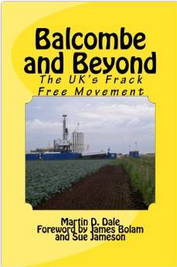
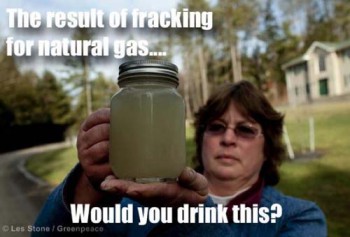
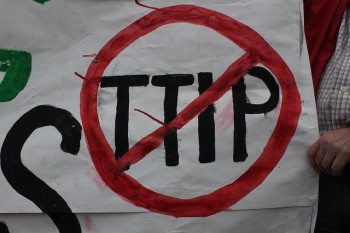

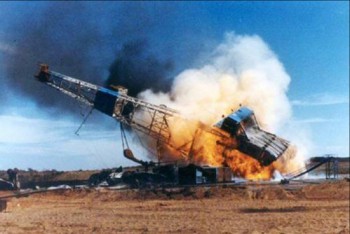
Leave a Reply